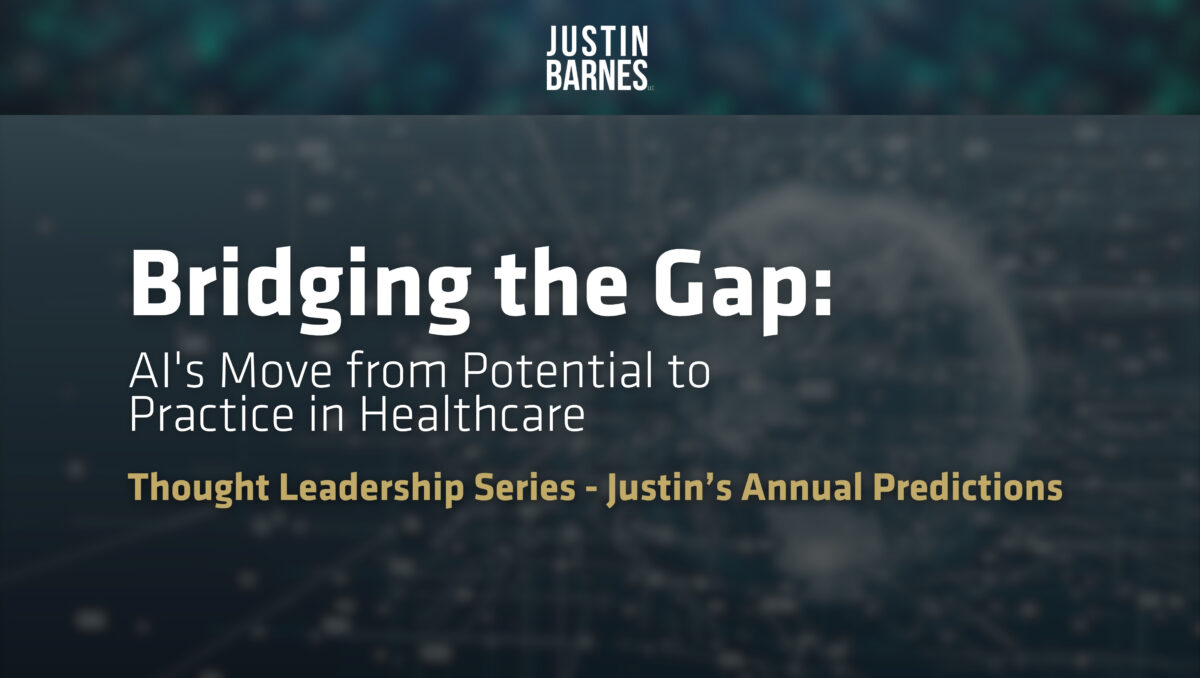Living the Initial Promise of Artificial Intelligence in Healthcare
Over the past few years, artificial intelligence has shown significant potential, but 2025 will be the year we start “living the promise” of AI in healthcare. We’ve seen early evidence of AI’s ability to improve outcomes, streamline operations, and enhance patient care, but it’s the growing collaboration between healthcare providers and technology companies that is turning this promise into reality.
From Promise to Progress: AI’s Impact in 2025
AI has already shown tremendous potential in diagnostic accuracy, predictive analytics, and personalized patient engagement. In recent years, healthcare providers have begun integrating AI-driven solutions in ways that directly impact patient outcomes, from using machine learning to predict patient deterioration to streamlining administrative tasks and optimizing treatment pathways. This year, I expect we’ll see more evidence that these AI solutions are not only scalable but sustainable and effective across various healthcare environments.
Collaborative Momentum: Healthcare and Tech Companies Join Forces
What excites me most about AI’s role in 2025 is the collaboration happening at the intersection of healthcare providers and technology innovators. Hospitals, health systems, and clinics are increasingly working with tech companies to tailor AI-driven solutions to meet their specific needs, which means more healthcare providers can take advantage of customized, cutting-edge innovation to better serve their patients. This partnership approach ensures that AI solutions are not only designed with clinical expertise in mind but are also flexible enough to adapt to each institution’s unique workflows and specific patient care plans.
A Glimpse Into the Future of AI in Healthcare
While we’re still in the early phases of AI integration, the progress so far is laying a solid foundation for a future where AI-driven solutions are as fundamental to healthcare as EHRs and data interoperability. As AI continues to evolve, I predict it will play a more proactive role in areas like predictive analytics for chronic care management, real-time patient monitoring, at-home care models, and workflow automation—allowing providers to focus more time on direct patient care that improves patients’ conditions while also improving their quality of life.
In 2025, I believe we’ll see AI establish itself as an indispensable partner in healthcare, proving that the benefits of machine learning and advanced analytics aren’t just theoretical but practical, tangible, and, most importantly, lifesaving.
The Growth Performance team has over 20 years of experience leading healthcare and digital health discussions, as well as policy on Capitol Hill. Key discussions like these aim to offer valuable insights that highlight the importance of staying engaged in the policy process, ensuring that healthcare leaders are not only prepared for the future but are actively shaping it. We are committed to creating transparent discussions so that we help the industry, and certainly our clients, successfully navigate the future of healthcare.

